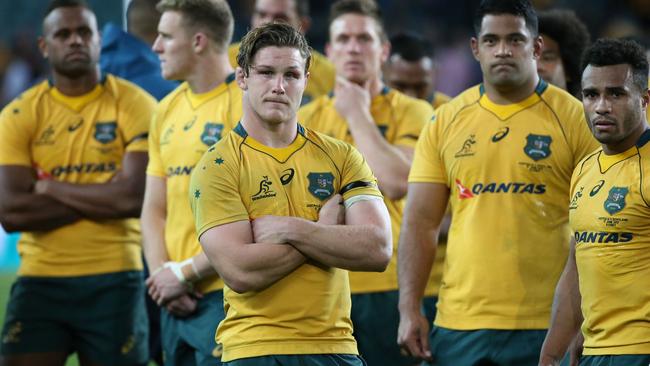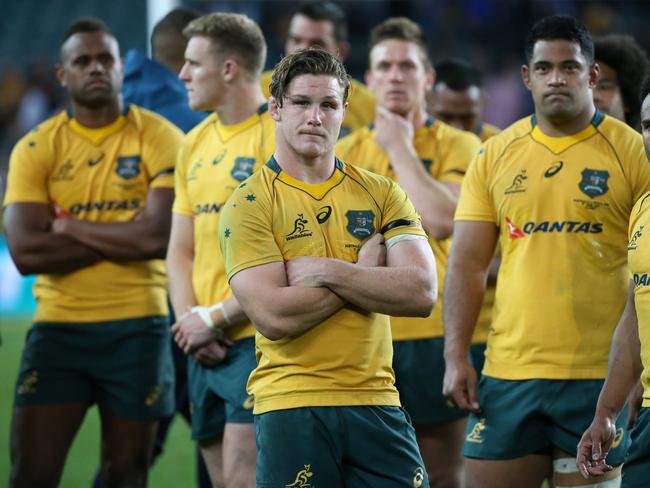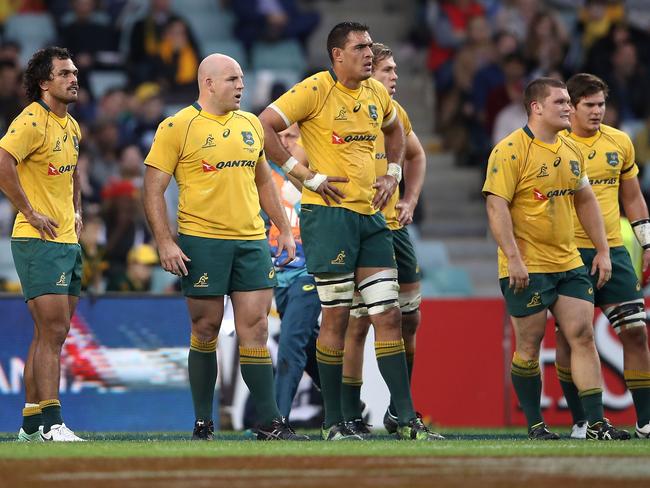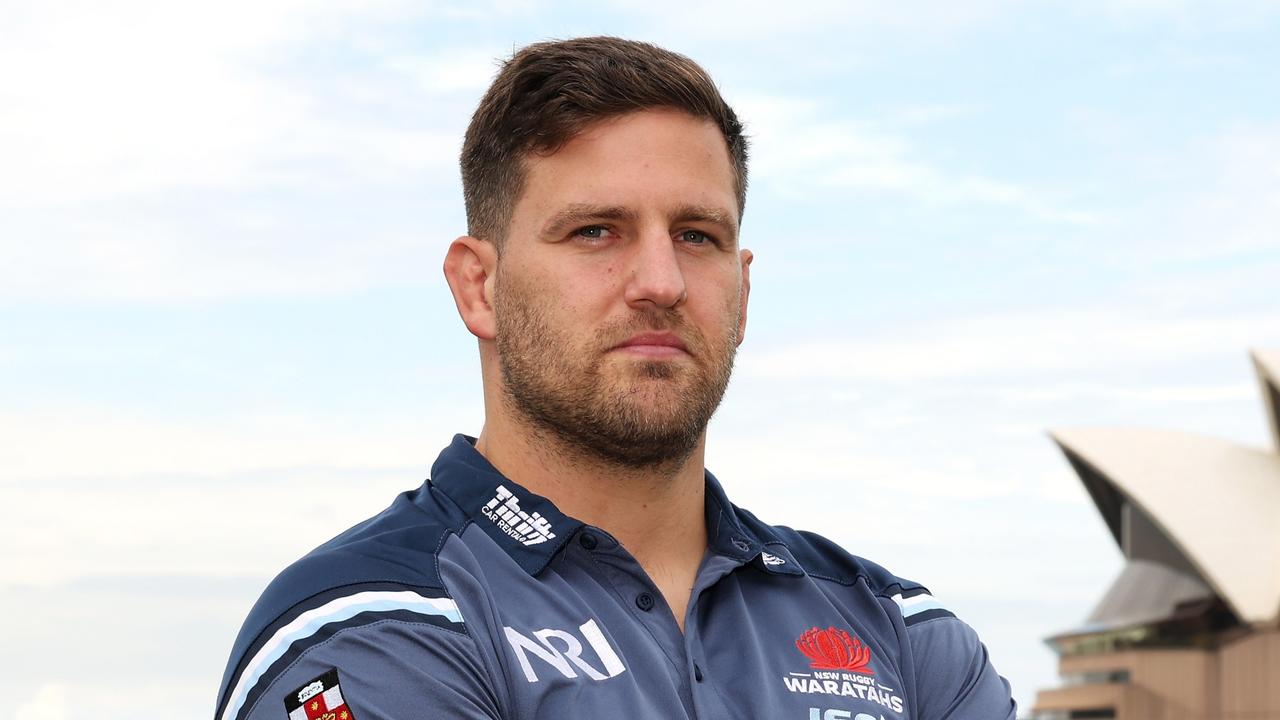The anger, frustration and despondency of Australian rugby fans has, it seems, never been greater
SUCCESS in Australian rugby has evaporated. In every corner. Seemingly overnight. And fan anger is at an all-time high, writes Iain Payten.

Rugby
Don't miss out on the headlines from Rugby. Followed categories will be added to My News.
“WE” has turned into “they”, and on that point alone, Australian rugby’s leadership need to break the glass and pull an alarm. The game is in trouble.
The Wallabies defeat to Scotland wasn’t a historic boilover. It was world no. 5 beating world no. 3, and Scotland also beat Ireland and Wales earlier this year.
But it was the familiarly inflexible and bungled way in which the Wallabies were beaten on home soil - again - that has Australian rugby fans fuming.

They’re as angry as they’ve ever been. Some view it as on a par with the Samoa loss in 2011, and one fan’s open letter to Michael Cheika - tearing strips off the team and asking to address them for 15 minutes in Brisbane - was widely shared on Sunday.
The anger, frustration and despondency of Australian rugby supporters has, it seems, never been greater.
The reason behind the rage is pretty straight forward: success in Australian rugby has evaporated. In every corner. And seemingly overnight.
Super Rugby is embarrassingly bad, the under 20s were again out before the finals, and even our Aussie sevens girls were knocked off their perch.
ANALYSIS: Wallabies’ defeat ‘an exhibition in brain dead’
RATINGS: See who starred and who flopped for Wallabies
Psychologists have done numerous studies on the impact of the sport on fans. Boiled down, success makes people feel good about themselves and defeats make people feel crap.
The fortunes of their team carries through into everyday life. When their team wins, they use the term “we”.
When losses pile up past the stretching point of loyalty, fans cut off the connection and switch to “they”.
Australian rugby only has “they” fans at the moment.
Rusted-on supporters who love the game find it is making them angry and deflated. They are upset a sport to which they’ve given a lot of their life and passion is simply not enjoyable anymore.
It’s not even a labour of love anymore. It’s just labour.
They’re despondent and if they’re not walking, they’re wavering.
And this should have all the leaders of Australian rugby hugely alarmed.
It is not being overly dramatic to say Australian rugby is now at a critical juncture where it risks losing not only past generations of supporters, but future ones too. And thus participants. And thus viability as a major code.
No other forecast can be made when the core — your ticket-buying, TV-watching base — is referring to the Wallabies as “they” and tuning out.
These are the same people you are banking on to steer their kids into rugby, against the rising tide of more popular domestic beasts like AFL or NRL.
What can be done?
Long-term is to break Australian rugby down and rebuild from the bottom-up. On the damning evidence of 2017, there can simply be no counterargument to change any more. Hope is not a strategy.

A major root-and-branch review of Australian rugby is required and new leadership brought in to conduct it, with the fresh eyes of an outsider carrying no institutional baggage.
Short term is to just win again. By one point or twenty, it seriously doesn’t matter.
Michael Cheika’s style — the “Australian way” of running rugby — is admirable but truth be told, it’s also low percentage.
Teams are content to defend their way to victory against Australia, knowing all they have to do is slow down the Wallabies’ ball to stifle their plans for up-tempo, multiphase attack.
Once slowed, Australia’s game becomes one-out and predictable. Plan Bs seem in short supply, panic creeps in and an atrophied kick-chase game is ineffective.
It is not a betrayal of Australian values to pay heed to the basic kick-pressure-defend game used successfully by England, the Lions and even New Zealand. It has ample scope for running rugby inside it.
The Wallabies, and Australian teams in general, need to focus far more on the plain act of winning, not the fine art.
Winning breeds belief, for players and for the fans.
And winning is the only thing that will bring back the “we”.
Right now, that should be Australian rugby’s only priority.
Originally published as The anger, frustration and despondency of Australian rugby fans has, it seems, never been greater


